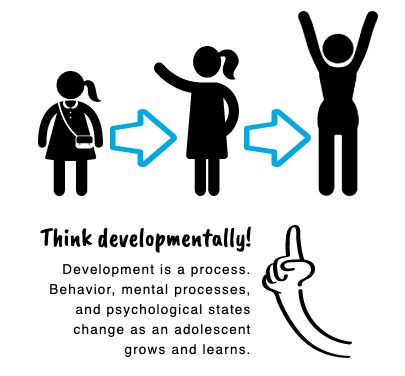Resource Library

Thinking “Developmentally”
August 29, 2019 | Filed in: BriefIt’s important to keep a developmental perspective when talking about adolescence. Here’s a brief summary of what it means to think developmentally. At the UCLA Center for the Developing Adolescent, we believe it is important to think developmentally about adolescence. Thinking developmentally means recognizing that adolescence is a time of unique capacities, motivations, and contexts,…

6 Fast Facts About Adolescent Development
August 29, 2019 | Filed in: Fact SheetRapid social learning, increased sensitivity to respect, and a drive toward new experiences are just a few of the factors that make adolescence a key window of opportunity. We review these research-based factors and a few more in this quick overview.

Autonomy and Connection
August 29, 2019 | Filed in: GuideClose relationships with trusted adults during adolescence provide the stability we need to be autonomous and connected to others. Increasing agency over our own lives is an important part of growing up. During adolescence, we learn to regulate our emotions, form and express our own opinions, and manage our own health, finances, and careers. But this increasing autonomy doesn’t mean going it…

What the Science Tells Us About Parenting an Adolescent
August 23, 2019 | Filed in: Fact SheetUnderstanding how parental influence shifts in adolescence can help parents, youth-serving professionals, and policymakers support families in ways that bolster the well-being of young people as they transition from childhood to adulthood. Note: This overview focuses on “parents” because most research on adolescent-family relationships has studied mothers and fathers. However, the findings are…
